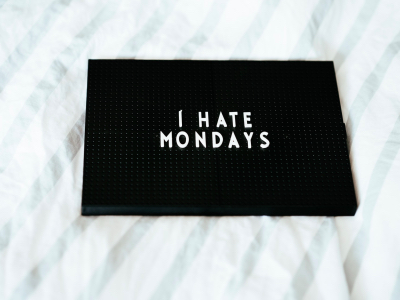On the road to better self-awareness at work we can uncover uncomfortable truths that require a longer look in the mirror, but it’s worth it, says Hannah Prince.
As professional women, how many of us ever stop for long enough to ask, ‘What’s it like to be on the receiving end of me?’
Poet Maya Angelou said, “People will forget what you said, people will forget what you did, but people will never forget how you made them feel.” This holds up in numerous academic studies that demonstrate employees have far greater trust in highly self-aware leaders.
While making New Year’s resolutions for 2018, I believe taking a long look in the metaphorical mirror would be energy well spent for everyone’s personal and professional lives.
Here’s why:
Your ‘normal’ is not everyone’s ‘normal’
If you find yourself getting misunderstood and misinterpreted at work, it’s important to ask yourself what norms and expectations you’re bringing to the table that may not be held by the people around you.
Depending on where you sit on the spectrum of classic Jungian defined attitudinal functions (introversion/extraversion, thinking/feeling, sensing/intuition), you may differ massively from your colleagues. The way to bridge the gap between your ‘normal’ and a colleagues’ ‘normal’ is to understand the unique mix of energies, personal tendencies and interpersonal preferences that are at play for yourself and for those whom you work closely.
So, get to know the difference between (and act on) your private self-awareness (your thoughts and emotions) and public self-awareness (your visible characteristics and mannerisms that you demonstrate) and think about how your normal is only normal for you.
Your effectiveness is dependent upon how you are received
Do people feel listened to, energised, supported and inspired by you? Or is the reality that you sometimes leave a wake of confusion and pressure that make others feel drained, excluded or unheard? We often have to learn the hard way that how we come across is not always interpreted as we intended.
You may be one of these people who doesn’t fret about this stuff. You’re happy with your style, you’re comfortable in your own skin – after all you’re not in the role to be liked, but to be a success and move the company towards its goals. That’s what you’ll be judged on, right?
But when that style is affecting those around you negatively, it is also affecting your results negatively. To find out how your style is perceived by those around you, you must ask them, even if you know it will be difficult for you to hear. Consider using a 360-degree feedback tool to encourage your team to deliver the unvarnished truth in a way that feels safe – and helps you build on your current style so you can build effective working strategies for working with others that differ from you.
Context is everything
Imagine what the answers would be to the question, ‘what’s on the receiving end of me?’ when you’re comfortable and in control, just a little stressed and then under huge pressure. Could there possibly be three different answers to these questions? Is it possible you’ve offended or upset someone with your regular communication style and not even known it?
Because we all have different strengths, weaknesses and interpersonal styles, how we show up on our good days and our bad days can look drastically different from one another. During times of stress, even our strengths (when overused) can do us a disservice. For instance, a sociable and inclusive extrovert may talk over people and become overbearing when they are stressed. Similarly, a reserved and thoughtful introvert may become even more inwardly-focused and may seem standoff-ish when they are stressed.
If the people around you are experiencing your ‘difficult self’ on a regular basis, you must consider how to own and deal with it on an individual level. It’s different for each person, but if you know how you show up on good days and bad days, you can see the stress signs coming and side-step your typical bad-day behaviours.
“This sounds simple enough”, I hear you say…yes, but are you and your colleagues applying this thinking in your working lives? If not, I recommend starting with the things on this list.
- Recognise your default approach – for example, when making decisions are you driven by the desire to create harmony and build strong one-to-one relationships or perhaps by logic and therefore tend to focus on facts over emotions?
- Recognise your stress triggers – what gets your goat? What can you do to make sure stress doesn’t dictate your behaviour?
- Recognise your how you process information – for example, do you speak to think or do you need to stop and reflect privately? Make space for doing what you need while also respecting the needs of others.
- Recognise your blind spots – our perceptions of ourselves can be different from the perceptions others have of us.
- Seek structured feedback – what some people think are their most positive, defining traits can turn out to be a double-edged sword for people who don’t share their values.
Let’s not forget, self-awareness is not just about ourselves. It’s about respecting different interpersonal preferences and working styles. When we understand ourselves better, we also develop a heightened ability to recognise others’ preferred approaches. We then, in theory, adapt and connect with others as the situation calls for it.
As Carl Jung put it, “there is no cure and no improving of the world that does not begin with the individual himself.” And as authors Avolio and Gardner put it, “self-awareness is not a destination point, but rather an emerging process where one continually comes to understand his or her unique talents, strengths, sense of purpose, core values, beliefs and desires.”
I’ve only skimmed the surface of the importance of self-awareness at work here, but one thing is sure: personal insights into what makes us tick deep down can lead to huge breakthroughs in business.
So, what results can you get from reflection this New Year?
About the author
Hannah Prince is the Business Psychologist at Insights Learning and Development. She has a passion for understanding the underlying psychological factors required for high performance in professional contexts.









